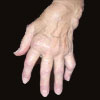What is Chronic Disease?
A health article about Chronic Disease from Your Health Online the A to Z directory of dealing with Health Problems & nutritional Self Care Strategies

Chronic disease, sometimes called chronic illness, is any type of disease that lasts longer than one year and either limits activity, requires medical attention, or both.
Some resources, like the National Cancer Institute, define this as any disease or condition that lasts longer than three months.
Examples include cancer, asthma, arthritis, and osteoporosis.
Chronic disease also encompasses mental health disorders such as depression.
People suffering are often at risk of developing a second chronic disease.
In addition, people who have diseases such as cancer or diabetes are often at risk for mental health issues like anxiety or depression.
A Guide to Chronic Disease:
What It Is, How It
Affects People, and How to Manage Types of Chronic Disease

Chronic disease is often defined as a disease or condition that negatively affects someone’s life and lasts three months or longer.
The CDC states that a condition isn’t considered chronic until it lasts one year or longer.
Many chronic diseases are not curable, but symptoms can be managed with medication, therapy, and lifestyle changes.
For some chronic diseases like Alzheimer's or multiple sclerosis, the symptoms can get worse over time.
A person 65 years or older has an 80% chance of developing a chronic disease.
The National Council on Aging writes, “Age, family genetics, and gender make it nearly impossible for older adults to avoid becoming a chronic disease statistic.
Eighty percent of adults 65 and older have at least one condition, while 68% have two or more.”
The most common chronic diseases are:
● Heart disease
● Diabetes
● Cancer
● Asthma
Chronic disease doesn’t only affect aging populations, although they are the most at risk. Many children and young adults suffer from chronic illnesses.
One source published in 2014 called “The Rise In Chronic Conditions Among Infants, Children, And Youth Can Be Met With Continued Health System Innovations” notes that children with chronic illnesses are increasing.
The article states:
- Since the early twentieth century, medical and public health innovations have led to dramatic changes in the epidemiology of health conditions among infants, children, and youth.
- Infectious diseases have substantially diminished, and survival rates for children with cancer, congenital heart disease, leukemia, and other conditions have greatly improved.
The same article goes on to say:
- However, over the past fifty years chronic health conditions and disabilities among children and youth have steadily risen, primarily from four classes of common conditions: asthma, obesity, mental health conditions, and neurodevelopmental disorders.
- It’s estimated that almost half of the United States population has at least one chronic disease, according to the American Hospital Association.
The American Hospital Association writes:
Today, an estimated 133 million Americans – nearly half the population – suffer from at least one chronic illness, such as hypertension, heart disease and arthritis.
That figure is 15 million higher than just a decade ago, and by 2030, this number is expected to reach 170 million.
How Do Professionals Define Chronic Diseases?

Regarding statistics and definitions, it should be noted that not every professional or organization defines chronic disease in the same way.
For instance, the CDC states that chronic disease must last longer than a year to fit the definition, while other sources like the National Cancer Institute and the National Health Council use the three-month marker.
PubMed Central shared an article in 2016 entitled “Use Your Words Carefully: What Is a Chronic Disease?” that touched on the differences in the definition of “chronic disease” and how it may be considered different depending on which organization or entity is discussing it.
The overview of that article states:
- One term that is often used in discussions between patients and medical providers, in the academic literature, and in policy discussions, is “chronic disease.”
- There is not only tremendous variation in the diseases that are included under the umbrella term “chronic disease” but also variation in the time a disease must be present for something to be referred to as chronic.
- Furthermore, there is a move to include chronic conditions that are not indicators of disease, but long-standing functional disabilities, including developmental disorders and visual impairment.
The article says that different diseases may be added to the list depending on the source.
For example, the Australian Institute for Health and Welfare definition of chronic disease includes dental and mental illness, which are omitted from some sources in the United States.
The CDC tends to focus more on chronic diseases such as heart disease, cancer, and diabetes as opposed to mental health disorders.
Many autoimmune diseases are chronic, but they rarely top the list of common chronic illnesses and may not be discussed in terms of chronic disease.
While mental health disorders are often chronic, depression is one of the few that land on the list of chronic illnesses, while many other mental health disorders do not.
When looking at information and statistics concerning chronic diseases, it is a nebulous term. It can be used to discuss a finite set of conditions or a broader definition encompassing all types of diseases.
Note: Sometimes, there is also a distinction between chronic disease, chronic illness, and chronic condition.
The dictionary definition of each of these terms is as follows:
● Disease: a condition of the living animal or plant body or of one of its parts that impairs normal functioning and is typically manifested by distinguishing signs and symptoms
● Illness: an unhealthy condition of body or mind
● Condition: a usually defective state of health
In this guide, we will use these terms mostly interchangeably.
No distinction will be made between chronic disease, chronic illness, and chronic condition.
Types of Chronic Disease

There are many types of chronic disease, and here we will share a list of those types.
This list is not exhaustive, but it includes many known types of chronic disease.
● Asthma
● Cancer
● Chronic Obstructive Pulmonary Disease (COPD)
● Cystic Fibrosis
● Diabetes
● Hypertension (High Blood Pressure)
● Lupus
● Obesity
● Reflex Sympathetic Dystrophy (RSD)
● Stroke
What Are Common Risk Factors for Chronic Disease?

Many factors can cause someone to have a chronic disease.
Many experts believe that the most common risk factors include tobacco use, poor nutrition, physical inactivity, excessive alcohol use, genetics, and family history.
Other less obvious risk factors include education, income level, race, gender, and poor mental health.
People with one chronic disease are also more likely to develop additional chronic diseases.
We’ll look closer at each type of risk factor and why they might lead to chronic disease.
Tobacco Use and Chronic Disease
Tobacco is one of the leading causes of chronic disease, affecting more than 16 million Americans.
The CDC states, “For every person who dies because of smoking, at least 30 people live with a serious smoking-related illness.”
Smoking and other tobacco use can lead to:
● Cancer
● Heart disease
● Stroke
● Lung disease
● Diabetes
● COPD
● Tuberculosis
● Poor immune system
● Arthritis
An article in the National Library of Medicine shares, “Tobacco dependence and chronic diseases are highly prevalent and each is top causes of morbidity and mortality in the world…The prevalence of smoking among people with other chronic diseases, and with overlapping chronic diseases, is less well documented.”
Poor Nutrition and Chronic Disease
Poor nutrition is also a major contributing risk factor for chronic disease. The CDC states:
Most people in the United States don’t eat a healthy diet and consume too much sodium, saturated fat, and sugar, increasing their risk of chronic diseases.
For example, fewer than 1 in 10 adolescents and adults eat enough fruits or vegetables.
In addition, 6 in 10 young people aged 2 to 19 years and 5 in 10 adults consume at least one sugary drink on any given day.
The University of Adelaide in Australia shares its findings on nutrition and chronic disease:
International research involving the University of Adelaide has shown for the first time that poor nutrition - including a lack of fruit, vegetables and whole grains - is associated with the development of multiple chronic diseases over time.
According to UCLA Health, some of the worst diets include high levels of:
● Sodium
● Sugar
● Caffeine
● Fruit juice
● Soda
● Alcohol
Other diet risks might include a diet high in meat and low in fruits, vegetables, and whole grains. Another commonly listed diet choice is processed foods, foods high in fat, and trans fat.
Physical Inactivity and Chronic Disease
Low exercise or physical inactivity is another risk factor for chronic disease. Low physical activity can lead to things like obesity, poor sleep quality, and an increased risk of developing a chronic disease.
An article in the National Library of Medicine writes, “Physical inactivity is a primary cause of most chronic diseases…physical activity primarily prevents, or delays, chronic diseases, implying that chronic disease need not be an inevitable outcome during life.”

Excessive Alcohol Use and Chronic Disease
The CDC lists alcohol abuse as one of the leading causes of chronic disease.
The CDC states, “Excessive alcohol use is a leading preventable cause of death in the United States, shortening the lives of those who die by an average of 26 years.”
The definition of excessive alcohol use by the CDC is as follows:
● Binge drinking is defined as a woman having 4 or more drinks at one time or a man having 5 or more drinks at one time
● Heavy drinking is 8 or more drinks per week for women and 15 or more for men
● Alcohol consumption by individuals under the age of 21
● Alcohol consumption by women who are pregnant
Some potential chronic diseases that can develop from excessive alcohol use are:
● High blood pressure
● Heart disease
● Stroke
● Liver disease
● Digestive problems
● Cancer
● Weakened immune system
● Dementia
● Mental health issues like depressionGenetics and Chronic Disease
Individuals with a family history of chronic disease are more at risk for developing a chronic disease.
The CDC states, “If you have a family health history of a chronic disease like cancer, heart disease, diabetes, or osteoporosis, you are more likely to get that disease yourself.”
While genetics play a role in developing a chronic disease, some sources believe that environment plays a larger factor.
Stanford Medicine quotes Stephen Rappaport, Ph.D., and Martyn Smith, Ph.D. stating, “Although the risks of developing chronic diseases are attributed to both genetic and environmental factors, 70 to 90 percent of disease risks are probably due to differences in environments.”
Education and Chronic Disease
Higher levels of education may lower the risk of developing a chronic disease.
One study published by the National Library of Medicine entitled, “Association of Educational Attainment With Chronic Disease and Mortality: The Kidney Early Evaluation Program (KEEP)” concluded that there is a “close relationship between education and health, including mortality.”
The study had 61,457 participants who were surveyed about their level of education and asked if they had any present chronic diseases.
They determined that people with higher levels of education had a lower risk of developing a chronic disease.
Here are their results:
Higher educational attainment was associated with lower prevalence of each of the chronic conditions listed above.
In multivariable models, compared with persons not completing high school, college graduates had a lower risk of each chronic condition, ranging from 11% lower odds of reduced kidney function to 37% lower odds of cardiovascular disease.
Over a mean follow-up time of 3.9 years (median, 3.7 years), 2,384 (4%) deaths occurred. In the fully adjusted Cox model, those who had completed college had a 24% lower mortality, compared to participants who had completed at least some high school.
The study does admit that it couldn’t “disentangle the independent effects of education from income.”
Meaning that those who have lower levels of education may be dealing with another risk factor for chronic disease, which is low income.

Low Income and Chronic Disease
There is a correlation between low income and chronic disease.
A study released by JAMA Network Open in 2020 revealed,
Findings of this study suggest that substantial and increasing disparities in cardiovascular disease prevalence exist in the United States between people in the highest-resources group and the remainder of the population.”
Meaning individuals with higher incomes and resources were less likely to suffer from cardiovascular disease than those who live on lower incomes and have fewer resources.
Healthy People, a federal government program tasked with improving the health of Americans, writes, “Some population groups living in poverty may have more adverse health outcomes than others.
For example, the risk for chronic conditions such as heart disease, diabetes, and obesity is higher among those with the lowest income and education levels.”
Poverty and the risk of chronic illness also affect children. In The Nation’s Health, the author writes,
The health risks associated with childhood poverty range from higher infant mortality risks to inadequate nutrition to a higher incidence of chronic disease, all of which contribute to a child’s school readiness, opportunity to learn and future health trajectory.
For example, children living in low-income families are more than twice as likely to have asthma, a major contributor to school absenteeism, than children in higher-income families.
But why would a person’s income have anything to do with their risk of developing a chronic disease? That’s a good question.
There are a variety of reasons for this. Some of those reasons include:
● Limited access to healthcare facilities
● Inability to pay for medical care
● People with higher incomes may have better access to healthier foods
● People in poverty may live in areas that are less safe and clean
● Smoking is a risk factor for developing chronic disease, and the CDC claims that cigarette companies tend to target ads in low-income areas. The CDC states, “Researchers have found a higher density of tobacco retailers in low-income neighborhoods.”
● People living in poverty are also more likely to experience high levels of stress, another risk factor for developing chronic diseases like heart disease, hypertension, and diabetes
● Stress can also contribute to unhealthy coping mechanisms like excessive alcohol consumption
●
Another possible reason for chronic illness in
low-income populations is higher levels of inactivity. People who live in
poverty may not feel that they have a safe environment for exercising and
likely won’t
have extra income to pay for gym memberships.
The Los Angeles Times writes, “But poor people face major obstacles to exercise…They often don’t feel safe exercising outdoors in their neighborhoods, don’t have public facilities to go to even if safety were not an issue, and can’t afford private facilities.”
Sometimes Chronic Disease Is Inevitable or the Cause Is Unknown
It would be a mistake to imply that all chronic diseases are a product of lifestyle. Many people live otherwise healthy, active lives who also live with or develop a chronic disease.
People who exercise, eat healthy meals, limit stress, and care for their health may still have a chronic disease.
Cancer, for example, is proven to exist in many cases, even in a healthy lifestyle. ABC News writes:
About two-thirds of the genetic mutations that lead to cancer happen simply because of random errors made as cells divide and not because of diet, chemicals or inherited genes, the team at Johns Hopkins University said.
Harvard Health Publishing explains,
Life contains no guarantees: yes, even if you live a healthy lifestyle you still can develop heart problems — particularly if you have been born with "bad" genes that make you vulnerable to heart disease.
Many people associate diabetes with obesity, but thin people can also have type 2 diabetes. WebMD states,
You don’t have to be overweight or obese to get type 2 diabetes. In fact, you can have high blood sugar even if you look thin.
Around 10% to 15% of people with type 2 diabetes are at a healthy weight.
There are other chronic diseases, such as multiple sclerosis or lupus, where the cause is unknown.
It may be a combination of genetics and the environment, but experts don’t know the exact reason why these chronic diseases exist.
Can You Lower Your
Chances of Developing a Chronic
Disease?

If you are trying to reduce your chances of developing a chronic disease or to lower your risk of developing a second one, some things can help.
Get Exercise
Exercise is an important part of reducing the risk of chronic disease. You may already be highly active, but if you find it difficult to stay active, here are some tips that can help.
● Physical activity doesn’t have to look one way. You can exercise in ways that you enjoy. For example, you may enjoy hiking or running more than going to the gym. You may also enjoy gardening or going for walks more than weight lifting. Staying fit doesn’t have to be a one-size-fits-all in order to stay healthy.
● Make exercise fun. Find ways to make exercise more fun. Exercise with friends or make it into a competition. Join a dance or yoga class, or find a gym you like. You can even find some YouTube videos that make exercise more entertaining.
● Exercise for very little money. If money is a barrier to getting exercise, you can use low-cost exercise ideas like walking or running in nearby parks, exercising along with YouTube videos in your home, or doing no-equipment needed exercises like pushups, situps, and burpees.

Eat Healthier Meals Regularly
Diet fads or skipping meals isn’t the best way to keep your body healthy. In fact, they may have the opposite conclusion.
Instead, consistently eating healthy meals high in nutrition is a better way of staying healthy and reducing the risk of chronic disease.
What foods are best for reducing the risk of chronic disease? That may be up for debate, but we’ll share some of the most commonly accepted answers.
The CDC suggests eating:
● Fruits
● Vegetables
● Whole grains
● Lean meats
● Low-fat dairy products
A study released in the National Library of Medicine suggests that higher intakes of these foods can lower the risk of chronic disease:
● Whole-grain bread
● Raw vegetables
● Coffee
● Cakes
● Cookies
Foods that were listed as putting people at a higher risk for chronic disease according to the study were:
● Low-fat dairy
● Butter
● Red Meat
● Sauce
The study noted, “The paradoxical findings concerning the potential health benefit of coffee as well as cakes and cookies are interesting and should be investigated further.”
In general, many sources suggest avoiding processed foods and heavy amounts of salt and sugar. Eating a lot of fruits and vegetables when possible is also often recommended.
Eating a healthy diet on a consistent basis can be difficult, so here are some quick tips to help.
● Don’t fall for fads or crash diets.
Diets that ask you to eat very few calories or only one type of food are generally not good for your body.
It’s better to eat consistently healthy foods with moderate exercise and lose weight and become more fit over time rather than quickly dropping weight.
● Meet up with a dietician.
If you have the resources, hiring a dietician to help you choose the right diet can be a good step in the right direction.
● Eat more fruits and vegetables.
The typical American diet would make vegetables and fruit a very small portion of a meal (if included at all), but instead, try to make it the biggest portion on the plate.
● Meal plan.
Choose meals ahead of time before you grocery shop. That way, you can choose meals you’re interested in eating, and you will have the groceries you need to make those healthier meals.
● Pack a lunch.
It’s much easier to pack a healthy lunch for work than trying to find something healthy at a restaurant or from the vending machine.
● Meal prep.
You can choose a day in the week to prep meals for the week, so you have quick, convenient meals when life is busy and hectic.
● Eat healthy on a budget.
If expense is a concern for eating healthy, you can try a few things like:
○ Growing a garden
○ Making a larger meal and eating the leftovers
○ Buy generic brands
○ Shop sales and use coupons
○ Buy produce in season
○ Buy frozen produce
○ Buy in bulk
○ Replace eating out with a larger grocery budget
○ Replace meat with healthy and inexpensive sources of protein like beans, legumes, tofu, and eggs
○ Drink more water – you won’t have to purchase drinks in most cases
○ Shop at more than one grocery store for the best deals
Quit Using Tobacco Products
If you’re a person who uses tobacco products, then you already know it isn’t good for your health, and you also know that it’s really difficult to quit using it.
Here are some tips to help you start quitting tobacco products.
●
Use
nicotine replacements. Nicotine replacements such as patches, gum, nasal
sprays, or inhalers can help curb intense cravings for tobacco products.
●
Think
about smoking triggers. Smoking triggers are places or events that might
make you think about smoking or chewing. For example, if you typically smoke
while going to a party or a bar, this might be a trigger.
● Join a support group. You can join a smoking cessation program or support group that can help you quit.
Get free coaching. The CDC offers a free quit smoking coach by calling 1-800-QUIT-NOW. You can also use visit their online resources at CDC.gov/quit and Smokefree.gov
Living a Healthy Lifestyle Is Good for People With Chronic Disease
The points listed above were geared towards people wanting to lower their risk of developing a chronic disease, but the same tips can help people with chronic diseases live healthier lives.
Many chronic diseases do not have a cure, but symptoms can be lessened with a healthier lifestyle alongside doctor-recommended medications and therapy.
How Does Chronic Disease Affect Someone’s Mental Health?

A chronic disease that affects someone’s physical state can also affect someone’s mental state. It’s no wonder.
A person who doesn’t feel well on a regular basis, isn’t able to do the things they want to do, or is scared about the outcome of their chronic disease may struggle with feelings of depression, anxiety, hopelessness, and other negative thoughts and feelings.
An article published by Johns Hopkins writes,
- Receiving a diagnosis of a chronic illness can be life-altering. Along with the day-to-day physical symptoms of the illness, emotions such as sadness, grief, and denial, as well as an added financial burden, can follow a diagnosis.
They go on to say,
- A patient who is diagnosed with diabetes, for example, will be instructed to visit several specialists each year, including an endocrinologist, ophthalmologist, and podiatrist. But rarely are patients referred to a mental health specialist as part of their treatment plan.
- Roughly 35 million Americans have diabetes, and they are 2 to 3 times more likely to develop depression than people without diabetes. But only 25%–50% of diabetics with depression get diagnosed and treated.
The CDC has also published literature linking chronic disease and mental health.
Many other associations exist between mental illness and cardiovascular disease, diabetes, obesity, asthma, and arthritis to name a few.
For example, the chart to the right shows the prevalence of major depressive disorder and other common chronic diseases.
Depression is found to co-occur in 17% of cardiovascular cases, 23% of cerebrovascular cases, and with 27% of diabetes patients and more than 40% of individuals with cancer.
The relationship between mental health, chronic disease and injury is significant.How to Cope With the Mental Effect of Chronic Disease
Here are a few tips to help you manage the mental stress that comes from a chronic disease.
● Become educated about your chronic disease. The more you know about your chronic disease, the more you can manage your symptoms and live as healthily as possible.
●
Find
a good healthcare provider. A good healthcare provider that understands
your disease and will take the time to give you individual care will provide
you with a great deal of mental peace.
●
Take
your mental health seriously – see a mental health specialist. If you’re
diagnosed with a chronic disease, it’s a good idea to meet up with a mental health care
specialist who can help you manage the mental aspect of discovering you have a
chronic illness.
●
Understand
that your life may change, but you deserve love and support. Your
chronic illness may change many aspects of your life, but it doesn’t take away
from your value. You’re
still worthy of being loved, and even if you can’t physically do some of the things
you used to be able to do, it doesn’t mean you deserve any less love or support.
●
Identify
who you want to be in your support circle. When you’re living with a chronic illness,
you may have a lot of people in your life who want to help, especially in the
beginning.
Choose a few people who you know you will be able to trust long-term.
These are the people you can rely on when you need help and those who you can
talk to when you’re
feeling down or upset about your chronic disease.
● Prayer or meditation can help reduce stress. Those who are religious may find peace in praying or sharing their thoughts with God.
● Let go of the things you can’t control and may no longer be able to do. Don’t try to do everything you did before you developed a chronic disease. If you can still do everything you were doing before, that’s great, but if you’re exhausting yourself or worsening your symptoms, it’s okay to dial things back.
● Be kind to yourself. Be kind and patient with yourself. Your body is going through a lot, and so is your mind. You’ll have great days and sad days, too. That’s a normal process when you have a chronic condition, and you can show yourself love through that process.
● Take rest and breaks when you need to. Take a break when you need to. Trust yourself to know when you need to rest.
● Let friends, families, coworkers, and bosses know what your boundaries are.
People in your life may not know what your limits are, so try to communicate what you feel like you can and cannot do.
They may not always understand your boundaries, but you can kindly let others know what you’re capable of.
Chronic Disease and You

Your chronic disease is not who you are, but it may significantly impact you emotionally, mentally, and physically.
When you’re diagnosed with a chronic disease you may have a period of mourning.
You may feel really sad when you find out about it. You may also be the type of person that wants to jump into action and do everything you can to limit the effect of your chronic disease.
There are many different reactions to a chronic disease diagnosis, and all of them are valid.
A few takeaways are if you have a chronic disease or if you’ve recently been diagnosed with one:
- Number one, take care of yourself. Take care of your physical, emotional, spiritual, and mental needs. It’s important to look after every aspect of yourself, and not just manage the symptoms of your chronic illness.
- Number two, surround yourself with people who will care for you, advocate for you, and support you.
- Number three, do your best to continue living a healthy lifestyle. Chronic disease is not a license to give up on your health. It’s just as important if not more important to eat healthy meals, exercise, get enough sleep, limit stress, and enjoy life.
Your chronic disease may change many aspects of your life, but there will always be many wonderful moments and times.
Cherish the good times. Acknowledge your chronic disease and do the important things you need to do to be healthy, but don’t let it consume every thought, conversation, or day.
Enjoy the many other important, exciting, or even comfortingly mundane things that life has to offer.

Vitamin & Nutrient Associations
Even when we try to eat well, we're disadvantaged. The nutritional
content of most food has been compromised over the years, not only by
deficient soils and modern production, transportation, storage and
processing methods, but also by the enormous amounts of chemical and
artificial substances added to promote growth, storage life, taste and
appearance.
It's for this reason that more and more medical authorities are
advocating the use of vitamin and mineral supplements. However, finding
them in the right combination can be both confusing and costly.
The nutrition products I am going to recommend you make use of knowledge
gained from the botanical world's 6,000 year history. They incorporated
health building nutritional herbs with the best modern technology to
help our bodies cleanse and detoxify so that the cells - the tiniest
living units - can be as fully nourished as possible.
This allows the cells to grow,
repair and to perform their functions with the best possible efficiency
so that we feel and look better and are more able to prevent and fight
disease. Once the body begins to clear itself of toxins it can more
efficiently absorb nutrition.
Further reading through our articles on health issues will give
you a body of information that will help you decide what options you
have to deal with the underlying causes of your problem through giving
your body the nutrition products that will assist you body to heal from
the inside out.
You can visit our health food products page here: Herbalife Health Nutrition Supplements and learn more about our core nutrition program, the Cellular Nutrition Advanced Program and also check out these targeted products, Florafiber to replace your healthy flora and Aloe Vera Juice to help cleanse your system.
Also using NouriFusion Skin Essentials will clearly help provide you with excellent skincare support for your ‘outer nutrition’.
We wish you well in your search for solutions to this problem and your movement towards better health in all areas.

More Chronic Disease Resources:
Resources:
https://www.cdc.gov/chronicdisease/about/index.htm
https://www.ncbi.nlm.nih.gov/pmc/articles/PMC5876976/
https://my.clevelandclinic.org/health/articles/4062-chronic-illness
https://www.cdc.gov/chronicdisease/about/index.htm
https://www.ncoa.org/article/the-top-10-most-common-chronic-conditions-in-older-adults
https://www.mainstreetclinics.com/blog/chronic-disease-management/4-most-common-chronic-diseases/
https://www.aha.org/system/files/content/00-10/071204_H4L_FocusonWellness.pdf
https://www.canada.ca/en/public-health/services/chronic-diseases/chronic-disease-risk-factors.html
https://www.cdc.gov/chronicdisease/about/costs/index.htm
https://www.health.ny.gov/diseases/chronic/
https://www.cdc.gov/tobacco/basic_information/health_effects/index.htm
https://www.ncbi.nlm.nih.gov/pmc/articles/PMC4568820/
https://www.cdc.gov/chronicdisease/resources/publications/factsheets/nutrition.htm
https://www.cdc.gov/chronicdisease/resources/publications/factsheets/physical-activity.htm
https://www.cdc.gov/genomics/famhistory/famhist_chronic_disease.htm
https://pubmed.ncbi.nlm.nih.gov/28958056/
https://www.ncbi.nlm.nih.gov/pmc/articles/PMC3144262/
https://www.ncbi.nlm.nih.gov/pmc/articles/PMC7584216
https://borgenproject.org/connections-between-poverty-and-chronic-disease/
https://www.ifm.org/news-insights/inflam-stress-inflammation-contribute-chronic-disease/
https://www.health.harvard.edu/heart-health/can-you-get-heart-problems-despite-a-healthy-lifestyle
https://www.mayoclinic.org/diseases-conditions/lupus/symptoms-causes/syc-20365789
https://www.health.harvard.edu/blog/diabetes-can-strike-hard-even-when-weight-is-normal-201208085121
https://www.helpguide.org/articles/addictions/how-to-quit-smoking.htm
https://www.mayoclinic.org/healthy-lifestyle/quit-smoking/in-depth/nicotine-craving/art-20045454
Below here are examples of Health Success Results other people have had with using a self care strategy for dealing with this condition:
We would be very interested to hear your result stories with your problem if you are using some of our nutrition products. To send us your story just fill out the form below.
Share *YOUR* remedy & health success story!
We are on a world-wide mission to source and tell our readers about as many as possible of the natural remedies & self care strategies available, so please help us to grow and improve our health information on this subject.
If you have a proven home remedy or natural treatment or have a great Health Success story, we would love to share it with our readers.
And as a special "Thank You" for your contribution, we will give you our special edition "Health Success Report"!
(When you submit this article you agree to the ***GENERAL RELEASE below this form)


*** GENERAL RELEASE AND ASSIGNMENT
For good and valuable consideration, the receipt
and legal sufficiency of which is hereby acknowledged, I ("I", "me",
"my") hereby agree as follows:
1) I hereby grant to Warren Tattersall, his successors, assignees and
licensees the unlimited right, but not the
obligation, to use any statements made by or attributed to me (my
"Statements") as well as my name, voice, and likeness, performance,
personal characteristics and other identifying information (jointly and
severally with the Statements and the photographs referenced in
Paragraph 2 below, my "Personal Characteristics") in and in connection
with the advertising, promotion, marketing and other exploitation of
Herbalife products or Warren Tattersall’s services in any and all
languages and media, now known or hereafter devised, throughout the
universe in perpetuity.
2) If I supply Warren Tattersall with photographs of myself on this date
or any date subsequent, I agree that Warren Tattersall may use such
photographs to the full extent provided above, I warrant and represent
that I am the person depicted in the photograph, I am the owner of the
photograph, I have the authority to grant the permission and rights
granted herein, and no one else’s permission is required to grant such
rights, and I understand that the copy of the photograph(s) I supply to
Warren Tattersall will not be returned.
3) I understand that Warren Tattersall is not obligated to use my
Personal Characteristics as permitted herein or, if commenced, to
continue with such use in any territory. I acknowledge and agree that
Warren Tattersall may make my Personal Characteristics available to
Warren Tattersall’s independent distributors to use as permitted above.
4) In undertaking the act of submitting my words and images through
www.TheHealthSuccessSite.com I understand that I am agreeing the terms
and conditions of this agreement
I have read this entire General Release and Assignment and fully
understand his contents. I likewise understand that this document shall
remain in full force and effect unless/until I request that it be
terminated, and that any such request must be made in a signed writing.
By signing below, I hereby acknowledge and agree to the
foregoing.
I understand that in submitting my material for publication I am granting the rights to reproduce this material on the internet or in other form and I have read the conditions above
BACK TO “Your Health Online”
the A to Z directory of dealing with Health Problems & Self Care Strategies for natural remedies to your health issues.
Terms of Use | Privacy Policy | Disclaimer | Site Map
====================================================
SITE DISCLAIMER: Do these products “cure” anything? Of course
not… but it stands to reason that if you cleanse your body and feed it
the finest nutrition available, giving it everything it needs in
balance, on a daily basis, that your body will do what nature intended,
and give you the best possible chance to fend off sickness and disease.
This Chronic Disease information is not presented
by a medical practitioner and is for educational and informational
purposes only. The Chronic Disease content is not
intended to be a substitute for professional medical advice, diagnosis,
or treatment. Always seek the advice of your physician or other
qualified health provider with any Chronic Disease
questions you may have regarding a medical condition. Never disregard
professional medical advice or delay in seeking it because of something
you have read.
The Chronic Diseaseresources on this site are not intended to be a substitute for professional advice. While all attempts have been made to verify Chronic Disease information provided in this publication, neither the author nor the publisher assumes any responsibility for errors, omissions or contrary interpretation of the web site Chronic Disease subject matter herein.
The site Chronic Disease contents are solely the opinion of the authors and should not be considered as a form of advice, direction and/or recommendation of any kind. If expert advice or counseling is needed, services of a competent professional should be sought. The author and the Publisher assume no responsibility or liability and specifically disclaim any warranty, express or implied for any Chronic Disease products or services mentioned, or any techniques or Chronic Disease practices described.
The purchaser or reader of this Chronic Disease publication assumes responsibility for the use of these materials and information. Neither the author nor the Publisher assumes any responsibility or liability whatsoever on the behalf of any purchaser or reader of these Chronic Disease nutritional supplements materials. There is no guarantee of validity of accuracy. Any perceived slight of specific people or organizations is unintentional.
This website and its
creators are not responsible for the content of any sites linked to.
Since natural and/or dietary supplements are not FDA approved they must
be accompanied by a two-part disclaimer on the product label: that the
statement has not been evaluated by FDA and that the product is not
intended to "diagnose, treat, cure or prevent any disease."
====================================================
the A to Z directory of dealing with Health Problems & Self Care Strategies for natural remedies to your health issues.

Subscribe to get your weekly "Health Success Magazine" with a new complete & comprehensive Health Report in every edition!

to “Your Health Success”
our weekly F’R’E’E’ Newsletter
If you would like a free no-obligation private consultation or to contact Warren Tattersall for more information, please click here >> Contact Us




